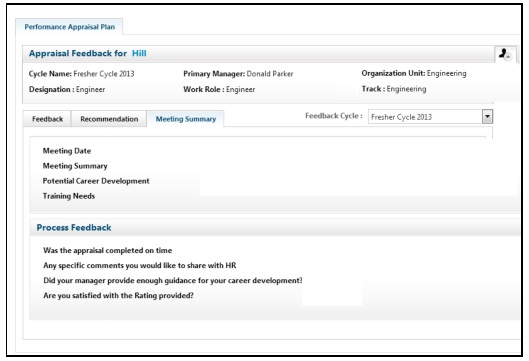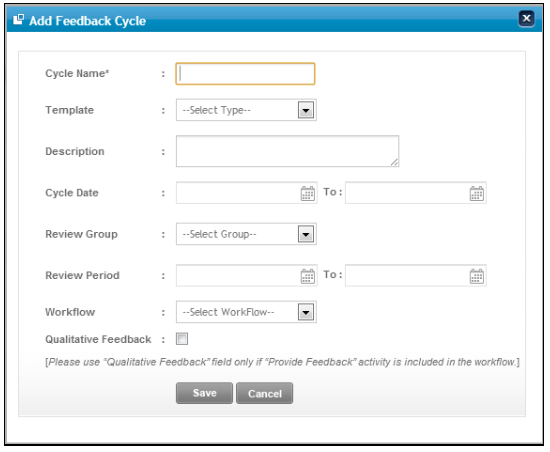Chapter 8
Timing Issues
8.1 A time-consuming process
Dr John Sullivan: Most of the forms are incredibly long and time-consuming. As a result, some managers routinely recycle “last year’s” evaluations. If HR is required to sit in on the sessions, the amount of wasted time increases significantly.
Solution
It is important to keep the appraisal process simple and straight forward. It is always better to follow KISS principle in performance appraisals. Often times, in majority of the organizations, it is clubbed with pay revisions. In this case, pay, performance and emotions are getting mixed and it is important to make sure that these are done objectively as much as possible. Following are critical:
-
Keep the form simple and straight forward.
-
Keep the no. of parameters minimal and make sure that these are always tied to the job description.
-
Make sure that these are objectively evaluated with metrics. Numeric numbers make the decision factors easy and meaningful.
-
Train the managers on the system
-
Publish the dates ahead of time and also send reminders to people to complete the process on time.
-
It is important that people see the connect between the forms, manager‘s action and HR‘s action. If the form captures training needs of employees, it is important that managers and HR act on such training requests. That will provide more confidence from the employees on managers, HR and in overall, organization.
Synergita provides the following tools to help the managers:
-
Filling the forms is easy.
-
Managers get to access all the information about an employee (peer feedback, other manager feedback, critical incident diary (or continuos feedback), past feedback, etc.) in single click from a single screen. Rating guidelines are available so that managers can refer them to provide accurate rating.
-
Managers will know the process status for their team members easily.
Synergita provides following tools to HR:
-
Automated reminders to defaulters. HR need not do the follow-up. System will do the necessary follow-up & also escalate to their supervisors.
-
HR will get complete view of the process status, detailed reports on who is at what stage, etc.
8.2 It is historical
Dr John Sullivan: the process is focused on capturing feedback about last year rather than on discussing necessary changes to job and skill requirements that must necessitated by the business strategy.
Solution
There is an important concept about "Feed Forward". Interesting example from Mr Mali Mahalingam, HR Practitioner and Executive coach (in.linkedin.com/pub/mali-mahalingam/2/965/573) – "Next time onwards, slow down the vehicle when you are taking U turn"; Next time onwards – is the key in this statement - it brings the feed forward approach into the element and helps the conversation focus on future rather than the past. You cannot change the past (feedback) in any way. But, you can control the future.
Appraisal process / forms should contain two sections:
-
Appraisals around the goals accomplished – you will need this to provide rating, increments, etc.
-
Goals / plans / any specific training requirements for the next year
With Synergita, it is easy to design the forms and capture information. You can get excellent reports based on people‘ training expectations, identifying organization area of improvements, etc.
While the tool is flexible to design the form and process to your organization needs, it is advisable to keep performance appraisals and salary revisions apart. This reduces the conflict of interest between both.

8.3 Not coordinated with business cycles
Dr John Sullivan: Some appraisal dates do not coincide with the end of major business periods or seasons when all other business results are tabulated and reported.
8.4 Not simultaneous
Dr John Sullivan: If appraisals are done on the employee’s anniversary date, the entire team will not be assessed at the same time.
Solution
It is a timing issue. Best practices are:
-
Coincide the appraisal dates with business cycles. For example, if the company is following up Jan-Dec as the financial year, it is better to keep the appraisals also around similar time frame (either Jan-Dec, Feb-Jan, etc.). That way, salary revisions will go into yearly budgets. Plus, it will be easy to take organizational performance into individual performance. Once the organizational performance is announced, it is easy to link it with individual salary revisions. You will be able to avoid issues such as "team members did very well; but, overall organization performed poorly".
-
Also, it is better to split the appraisals into two portions: one focussing on salary revisions; other focussing on the competency,
-
training needs for next year, etc. This will keep the discussions more objective.
-
Keep the appraisals for everyone together. This will help in doing better analysis on the performance, appraisals, etc. Will also reduce lot of overheads on HR, payroll systems, etc. All the changes will be done in one shot. Certain organizations keep the appraisals on employee‘s anniversary date – this will help in reducing the comparison (salary front) among people. But, in a way, it increases lot of overhead and also does not help in doing performance comparisons among peers.
With Synergita, it is easy to create start and end appraisal cycles. It is easy to add people, set the workflow for the cycle, etc.






